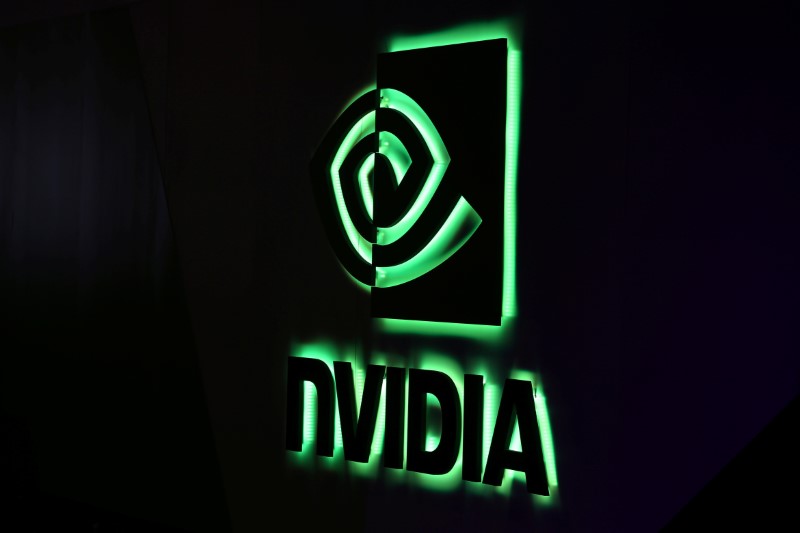Nvidia Corporation's (NASDAQ:NVDA) President and CEO, Jen-Hsun Huang, has sold a significant number of shares in the company, according to the latest filings. The transactions, which took place over two days, resulted in the sale of Nvidia stock worth approximately $28.87 million. The sale prices for these shares ranged between $113.854 and $124.2004.
On July 23, 2024, Huang sold shares at prices that varied within tight ranges, indicating a strategic approach to the sales process. For instance, one set of shares was sold at prices from $122.14 to $122.99, while another set ranged from $123.00 to $123.99. Further sales on the same day saw shares going for between $124.00 and $124.64. The following day, on July 24, the shares were sold at lower prices, starting from $113.59 to $113.99 in one instance and reaching up to $119.00 to $119.84 in another.
The transactions were conducted under a Rule 10b5-1 trading plan, which Huang had adopted on March 14, 2024. This plan allows company insiders to sell shares over a predetermined period of time, providing a defense against potential accusations of trading on insider information, as the sales are planned in advance of any knowledge of material non-public information.
Following these sales, Huang still retains a substantial amount of Nvidia stock, both directly and indirectly. The filings indicate holdings in various trusts and partnerships, with direct ownership following the transactions totaling over 78 million shares. Indirectly, through trusts and partnerships, Huang has interests in millions more shares, ensuring his continued alignment with the company’s performance and shareholder interests.
Investors often monitor insider transactions as they can provide insights into the executives' confidence in the company's future prospects. However, it's important to note that such sales can be motivated by a variety of personal financial planning reasons and do not necessarily indicate a negative outlook for the company.
For those interested in the specifics of the transaction, the filings state that full information regarding the number of shares sold at each separate price will be provided upon request to the Securities and Exchange Commission, Nvidia, or any security holder of the issuer.
In other recent news, Nvidia has been actively making strides in various sectors. The company approved the use of Samsung (KS:005930)'s fourth-generation high bandwidth memory chips for a specific graphics processing unit tailored for the Chinese market. On a different note, Nvidia introduced the NVIDIA AI Foundry service designed to boost generative AI for enterprises. The launch of this service, which leverages Meta (NASDAQ:META)'s Llama 3.1 models, is viewed by Citi as a significant step for Nvidia in addressing the growing demand for AI solutions in the enterprise sector.
In the broader market, a significant downturn in major technology stocks occurred recently, with disappointing earnings reports from Tesla (NASDAQ:TSLA) and Alphabet (NASDAQ:GOOGL) sparking anxiety over future reports from other big tech companies, including Nvidia. The Nasdaq Composite experienced a steep decline, while the S&P 500 fell. Investors using leveraged exchange-traded funds that track Nvidia's stock movements are facing heightened risks as the technology sector experiences significant market turbulence.
Analysts have maintained a positive outlook on Nvidia, with Citi reaffirming its Buy rating and Piper Sandler increasing Nvidia's price target. As earnings reports from other major tech firms are due soon, investors are bracing for more volatility, which could affect the performance of leveraged ETFs tied to tech stocks. These are recent developments that highlight the dynamic nature of the tech sector.
InvestingPro Insights
Amidst the news of Nvidia Corporation's (NASDAQ:NVDA) CEO Jen-Hsun Huang's recent stock sales, investors are evaluating the company's financial health and prospects. According to real-time data from InvestingPro, Nvidia boasts a robust market capitalization of $2.77 trillion USD, reflecting the company's dominant position in the technology sector. The P/E ratio, a measure of a company's valuation, stands at 65.72, which is on the higher side, indicating that investors are willing to pay a premium for Nvidia's earnings growth potential.
InvestingPro Tips highlight Nvidia's perfect Piotroski Score of 9, suggesting that the company is financially healthy and has sound operating efficiency. Additionally, analysts expect Nvidia to continue its sales growth in the current year, which could be a driving factor behind the company's high valuation multiples. These insights may provide context to Huang's decision to sell shares, as the company's strong financial position and growth prospects could mean that the sales are part of personal financial planning rather than a reflection of the company's future outlook.
Investors looking to delve deeper into Nvidia's financial metrics and gain additional insights can find more InvestingPro Tips on the company's profile at https://www.investing.com/pro/NVDA. There are 19 additional tips available, offering a comprehensive analysis of Nvidia's performance and valuation. For those seeking an in-depth understanding of Nvidia's market position and investment potential, consider using the coupon code PRONEWS24 to get up to 10% off a yearly Pro and a yearly or biyearly Pro+ subscription.
This article was generated with the support of AI and reviewed by an editor. For more information see our T&C.
